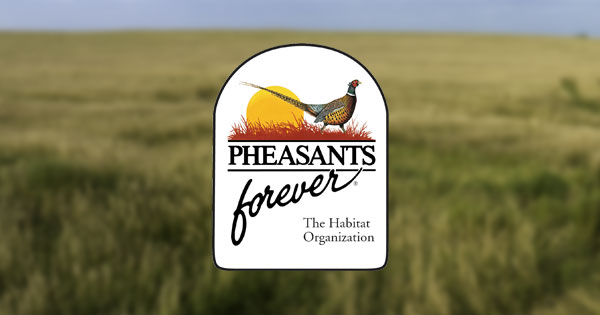Partner Profile | Pheasants Forever


From modest basement beginnings to a national conservation success: Pheasants Forever
Written by: Michael Brown, Manager of Innovative Finance, and Heather Druffel, Senior Communications Manager
In 1982, a passionate letter to a local newspaper in St. Paul, Minnesota sounded an urgent call to action. The writer warned of the devastating loss of habitat for pheasants – a concern shared by hunters and conservationists alike. Motivated by the gravity of the issue, a group of friends gathered in a basement to take action. This meeting led to the formation of Pheasants Forever (PF), which is now known by many as “the habitat organization.”
Now the national leader in upland habitat conservation, PF works with 400,000 members, including 700 volunteer-led chapters, agencies, and corporate partners. These collective efforts support working landscapes and the people and wildlife that depend on them. PF empowers local chapters with the responsibility to determine how 100 percent of their locally raised conservation funds will be spent—the only national conservation organization that operates through this truly grassroots structure. This allows chapter volunteers to see the fruits of their efforts locally, while belonging to a larger national organization with influence on federal and state conservation policy.
The key to PF’s national success lies in hiring highly qualified professional staff. These professionals focus on building relationships with private landowners, coordinating with local partners, and providing conservation technical assistance. Their strategy enhances the sustainability of agricultural operations while also providing critical habitat for wildlife. In 2023 PF worked with more than 38,000 private landowners and managers, impacting 2.2 million acres of habitat across the country. These projects not only improved habitats for pheasants and quail but also created other ecosystem co-benefits such as increased biological diversity, reduced wildfire risk, improved soil health, enhanced water quality and reliability, and protected migration corridors.
Implementing meaningful conservation at a landscape scale depends on all landowners having access to necessary resources. Otherwise, even with the best intentions, landscapes are treated with random acts of conservation kindness. Smaller private landowners can miss out on opportunities due to greater financial stress, fewer resources to participate in programs like the Natural Resources Conservation Service’s (NRCS) Environmental Quality Incentive Program (EQIP), and a lack of the necessary financial flexibility to fund upfront costs most projects require. Roughly 88% of all farms in the United States are considered small farms, so the ability to implement projects at larger scales will depend on creating more equitable pathways to access these conservation programs.
To address this challenge and increase conservation program funding accessibility, Blue Forest and PF have co-developed the first-ever private lands focused Watershed Resilience Bond (WRB). This pilot WRB illustrates the immense potential of supporting private landowners in leveraging cost-share programs, like those offered by NRCS, to unlock hundreds of millions of dollars for conservation.
The Southern Oregon-Northeastern California (SONEC) I WRB launched in late summer of 2024. The partnership is already supporting two landowners in implementing NRCS conservation plans that otherwise would have been unattainable. This is just the start PF and Blue Forest are looking to expand this effort to other counties in the SONEC region endeavoring to help more people and communities achieve their conservation goals. Together, through this groundbreaking partnership between Pheasants Forever and Blue Forest, we are pioneering new pathways in conservation, proving that collaborative and innovative solutions hold the key to sustaining our landscapes, wildlife, and communities for generations to come.